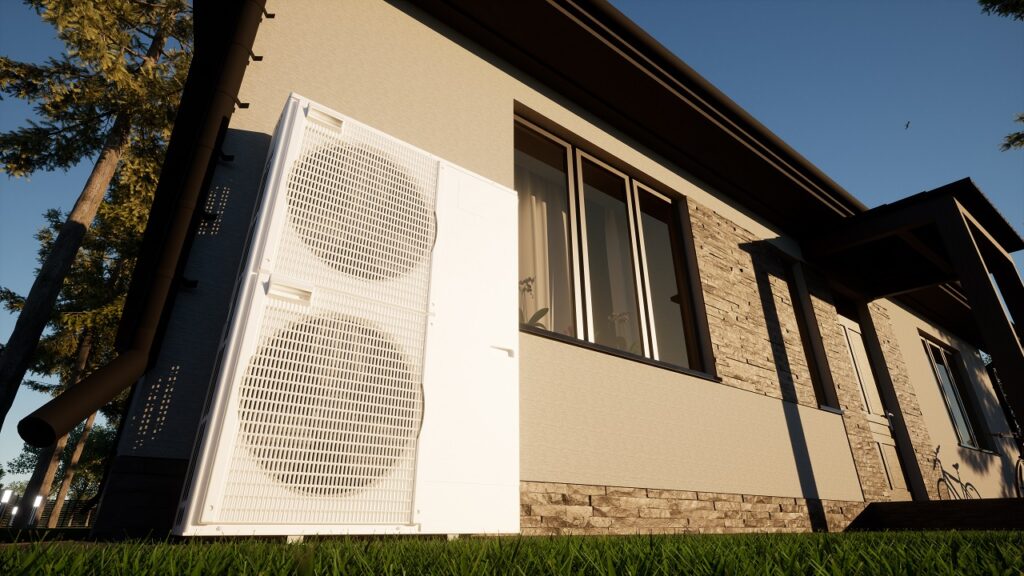Heat pumps are becoming an increasingly popular choice for both residential and commercial properties due to their ability to provide efficient heating and cooling. Unlike traditional HVAC systems that generate heat, heat pumps transfer heat from one location to another. This process not only conserves energy but also provides consistent temperature control regardless of the season.
The versatility of heat pumps makes them suitable for various environments, and their energy-efficient operation contributes to significant cost savings over time. Moreover, these systems are environmentally friendly, producing fewer carbon emissions compared to conventional heating and cooling methods.
Whether you are looking to upgrade an existing system or seeking a new installation, our professionals can help you navigate the complexities of heat pump technology. From selecting the right type of heat pump for your needs to ensuring optimal performance through professional installation and maintenance, we are dedicated to maximizing your energy efficiency and comfort.
Understanding How Heat Pumps Work
Heat pumps operate on a principle that exploits the differences in temperature between two environments to transfer heat. At their core, heat pumps move heat from one place to another rather than generating it directly. During colder months, they extract heat from the outside air, ground, or water and transfer it indoors. Conversely, in warmer months, they function like an air conditioner, removing heat from indoor spaces and releasing it outside.
There are three main types of heat pumps: air-source, ground-source (or geothermal), and water-source. Air-source heat pumps are the most common and extract heat from the surrounding air. They are relatively easy to install and are suitable for a wide range of climates.
Ground-source heat pumps draw heat from the stable temperatures found below the Earth’s surface, requiring a more complex installation. Water-source heat pumps rely on a nearby water body to transfer heat, necessitating proximity to a sufficient water source. Each type offers distinct advantages, but all are unified by their impressive energy efficiency.
Benefits of Using Heat Pumps for Energy Efficiency
Heat pumps provide significant energy savings compared to traditional HVAC systems. Since they transfer heat instead of generating it, they consume less energy. This efficiency translates into lower utility bills and reduced energy consumption. Consequently, using heat pumps can lead to substantial long-term cost savings and a favorable return on investment.
Beyond financial savings, heat pumps offer notable environmental benefits. They significantly reduce greenhouse gas emissions by relying on natural heat exchange processes rather than burning fossil fuels.
This reduced carbon footprint contributes to a more sustainable and eco-friendly heating and cooling solution. Additionally, heat pumps often have longer lifespans than traditional systems, which means less frequent replacements and less waste. Embracing heat pump technology not only enhances energy efficiency but also promotes responsible environmental stewardship.
Implementation of Heat Pumps in Residential Spaces
Integrating heat pumps into existing home environments can greatly enhance energy efficiency and comfort. The process typically begins with a thorough assessment of your home’s current heating and cooling setup. Our technicians evaluate factors such as insulation, window quality, and existing ductwork. Based on this assessment, we recommend the most suitable type of heat pump for your home, whether it be an air-source, ground-source, or water-source system.
Customizing heat pump installations to meet specific residential needs is crucial. For example, an air-source heat pump might be ideal for homes in moderate climates, while a ground-source heat pump could be the best option for homes requiring consistent heating and cooling throughout the year. We offer various customization options, including zoning controls and programmable thermostats, to tailor the system to your lifestyle and comfort preferences. By addressing each home’s unique requirements, we ensure optimal performance and energy savings.
Optimizing Heat Pump Performance in Commercial Settings
Maximizing the efficiency of heat pumps in commercial buildings requires a strategic approach. One of the key strategies involves enhancing insulation and minimizing air leaks, which helps maintain a stable indoor temperature and reduces the load on the heat pump. Another effective method is the integration of advanced control systems that allow for precise temperature management across different zones of the building. These systems can be programmed to adjust settings based on occupancy and usage patterns, further boosting energy efficiency.
Professional installation and regular maintenance are essential for maintaining peak heat pump performance in commercial settings. Our technicians ensure that each unit is correctly installed and calibrated to meet the specific needs of your commercial space.
Regular maintenance checks, including cleaning filters, inspecting ductwork, and verifying that refrigerant levels are correct, prevent potential issues, and extend the lifespan of the system. Consistent maintenance helps avoid costly downtime and ensures that your heat pumps operate at maximum efficiency year-round.
Conclusion
Heat pumps play a pivotal role in enhancing energy efficiency for both residential and commercial properties. By understanding how they work, recognizing their benefits, and implementing them effectively, you can achieve significant energy savings and reduce your environmental impact. At Agape Air Heating & Cooling, our team is dedicated to helping you realize these benefits through professional heat pump installation in Gilbert, AZ, and comprehensive support.
Don’t wait to transform your heating and cooling system. Contact us today to explore how heat pumps can provide a sustainable, cost-effective solution for your home or business. Our professionals are ready to guide you through the installation process and ensure optimal performance for years.


